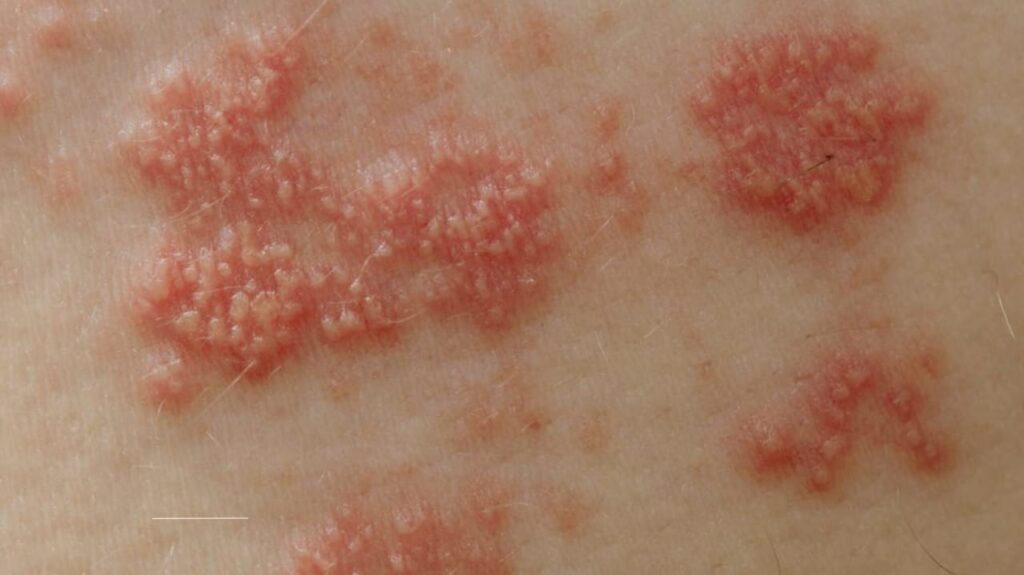
Shingles, with its painful rash and lingering discomfort, is a condition many associate with aging or a history of chickenpox. But what if you’ve never had chickenpox? Can you still develop shingles? The answer lies in understanding the sneaky behavior of the varicella-zoster virus (VZV)—the culprit behind both illnesses. Let’s break down the science, debunk myths, and explore what experts say about this often-misunderstood connection.
The Chickenpox-Shingles Link: A Viral Double Life
To grasp why shingles occurs, we need to rewind to childhood. Chickenpox, a highly contagious illness causing itchy blisters, is caused by the varicella-zoster virus. After recovery, VZV doesn’t leave the body. Instead, it hides in nerve tissues near the spinal cord and brain, entering a dormant phase called latency.
Years or decades later, the virus can reactivate—often due to aging, stress, or a weakened immune system—and travel along nerve pathways to the skin. This reactivation causes shingles (herpes zoster), characterized by a burning rash, sensitivity, and sometimes long-term nerve pain (postherpetic neuralgia).
Key Fact:
- Approximately 1 in 3 Americans will develop shingles in their lifetime, with risk increasing after age 50 (CDC, 2023).
The Big Question: Shingles Without Chickenpox?
The short answer? It’s highly unlikely—but not impossible. Here’s why:
1. The Chickenpox Requirement (Most of the Time)
Traditionally, shingles only affects those who’ve had chickenpox. The virus must first establish latency during the initial infection. If you’ve never encountered VZV—either through illness or vaccination—there’s no virus in your system to reactivate.
2. The Vaccine Exception
Since the 1990s, the chickenpox vaccine (Varivax) has protected millions. Unlike older vaccines, Varivax uses a live attenuated virus—a weakened form of VZV. This means the vaccine introduces the virus into your body, allowing immunity without full-blown chickenpox.
Here’s the twist: The vaccine virus can also become dormant and reactivate as shingles. While rare, studies confirm that vaccinated individuals can develop shingles, even if they never had natural chickenpox.
Example:
A 2019 study in Pediatrics found the shingles rate among vaccinated children was 78% lower than in unvaccinated groups—but not zero. Most cases were mild, with fewer complications than shingles from wild-type VZV.
Wait, Can You “Catch” Shingles From Someone Else?
A common myth suggests shingles is contagious. While you can’t “catch” shingles itself, exposure to someone with shingles can transmit VZV. If you’ve never had chickenpox or the vaccine, contact with shingles blisters might lead to chickenpox—not shingles. Once infected, however, you now carry the virus and could later develop shingles.
Statistic:
- About 30% of people hospitalized for shingles complications require care for bacterial skin infections or pneumonia (Mayo Clinic, 2022).
The Vaccine Factor: A Game-Changer With Caveats
The chickenpox vaccine has drastically reduced infections, but it’s reshaped the shingles landscape:
- Lower Risk, But Not Zero: Vaccinated individuals have a lower shingles risk than those who had chickenpox. The vaccine strain (vOka) is less prone to reactivation.
- Milder Symptoms: Shingles post-vaccination often involves fewer blisters and shorter duration.
- Age Matters: Shingles remains rare in vaccinated children but increases slightly with age, mirroring natural infection patterns.
Expert Insight:
Dr. Sandra Leung, an infectious disease specialist, notes, “The vaccine reduces shingles risk, but immunity can wane. That’s why the shingles vaccine (Shingrix) is recommended for adults over 50, regardless of chickenpox history.”
What If You’re Unsure About Chickenpox History?
Many adults are uncertain if they had chickenpox. Blood tests can check for VZV antibodies, but guidelines simplify this:
- Born Before 1980? The CDC assumes most U.S. adults had chickenpox, even if asymptomatic.
- Vaccinated? Two doses of Varivax provide 90% protection against chickenpox.
If you’re eligible for the shingles vaccine (Shingrix), doctors recommend it even without confirmed chickenpox—erring on the side of caution.
Protecting Yourself: Vaccines and Vigilance
Prevention hinges on two key strategies:
- Chickenpox Vaccine (Varivax):
- For children and unvaccinated adults.
- Reduces shingles risk by preventing initial infection.
- Shingles Vaccine (Shingrix):
- Recommended for adults 50+ and immunocompromised individuals 19+.
- Over 90% effective at preventing shingles and complications.
Case Study:
A 45-year-old teacher received Varivax as an adult. At 52, she developed a mild shingles rash on her torso. Her doctor confirmed it stemmed from the vaccine virus, highlighting the importance of Shingrix boosters.
Myth-Busting: Common Shingles Misconceptions
- Myth: “Only seniors get shingles.”
Truth: While risk increases with age, younger adults and even children can develop shingles, especially if immunocompromised. - Myth: “If I had chickenpox, I’ll definitely get shingles.”
Truth: About 30% of chickenpox survivors develop shingles. Vaccination and immune health lower odds.
The Role of Immunity: Your Best Defense
A robust immune system keeps VZV dormant. Factors like stress, chemotherapy, or HIV can weaken defenses, enabling reactivation. Maintaining health through diet, exercise, and managing chronic conditions is critical.
Statistic:
- Immunocompromised individuals face a 20–50% higher risk of shingles recurrence (National Institute of Allergy and Infectious Diseases).
Final Takeaways
While shingles without prior chickenpox is rare outside vaccination, understanding VZV’s behavior empowers prevention. Vaccines remain the cornerstone of protection, offering layers of defense against both chickenpox and shingles. If you’re unsure of your history or risk, consult a healthcare provider—proactivity is key to staying shingles-free.
